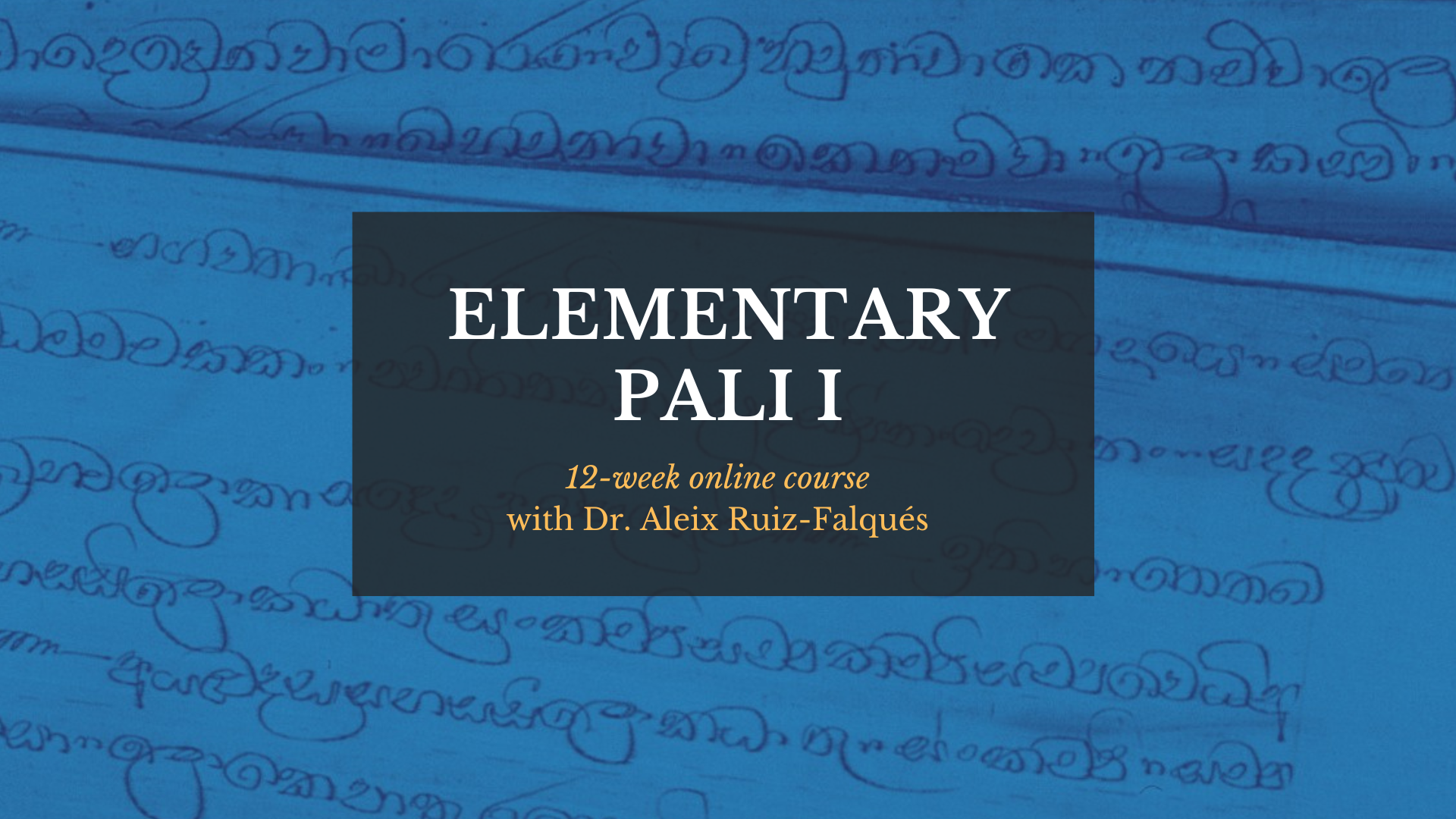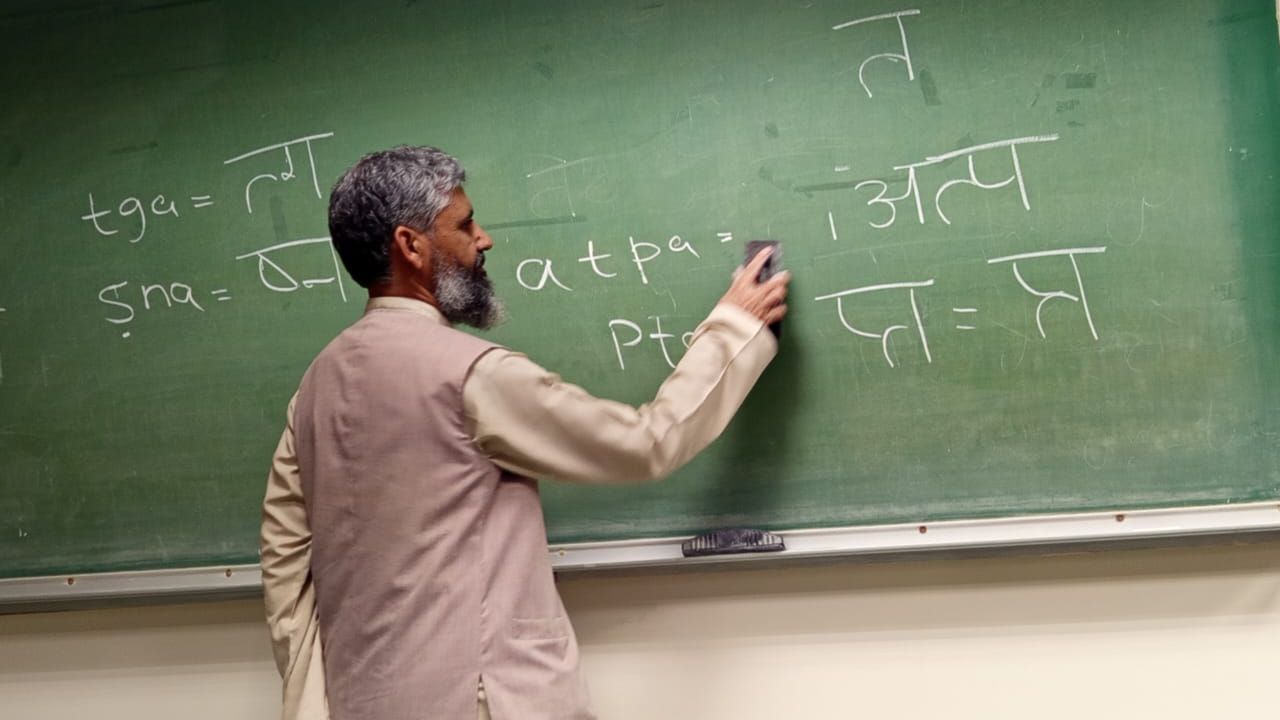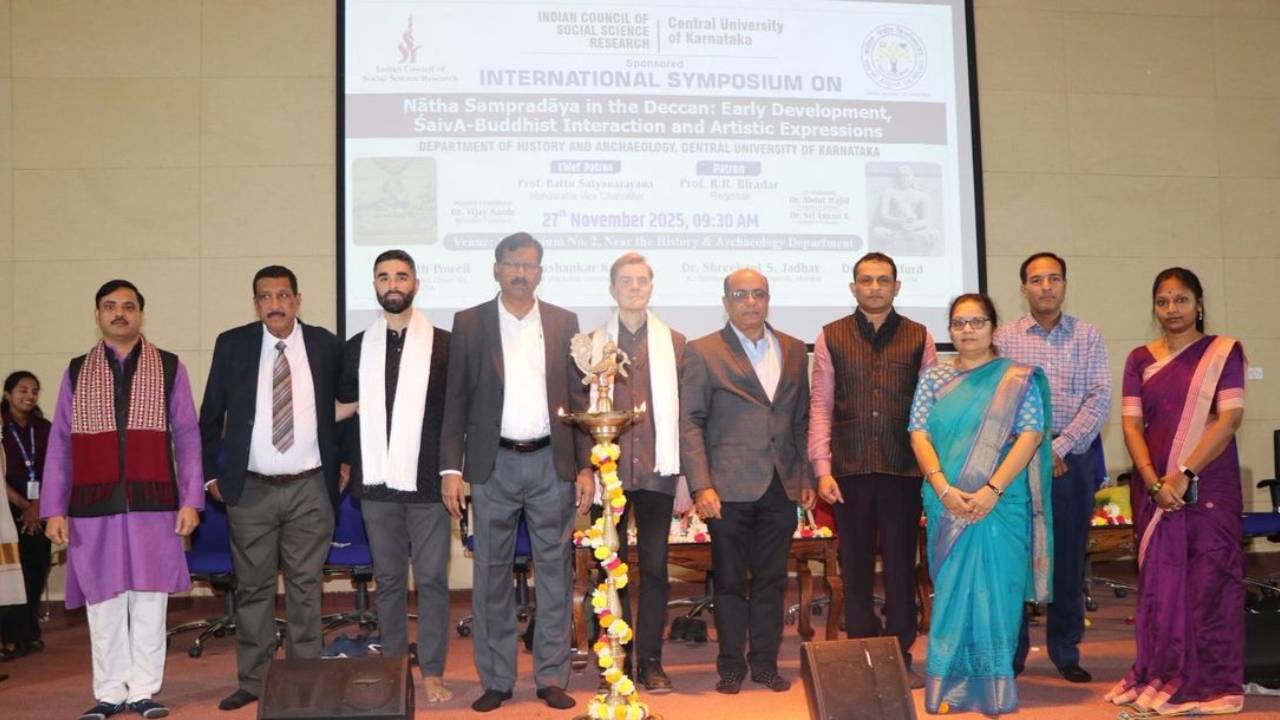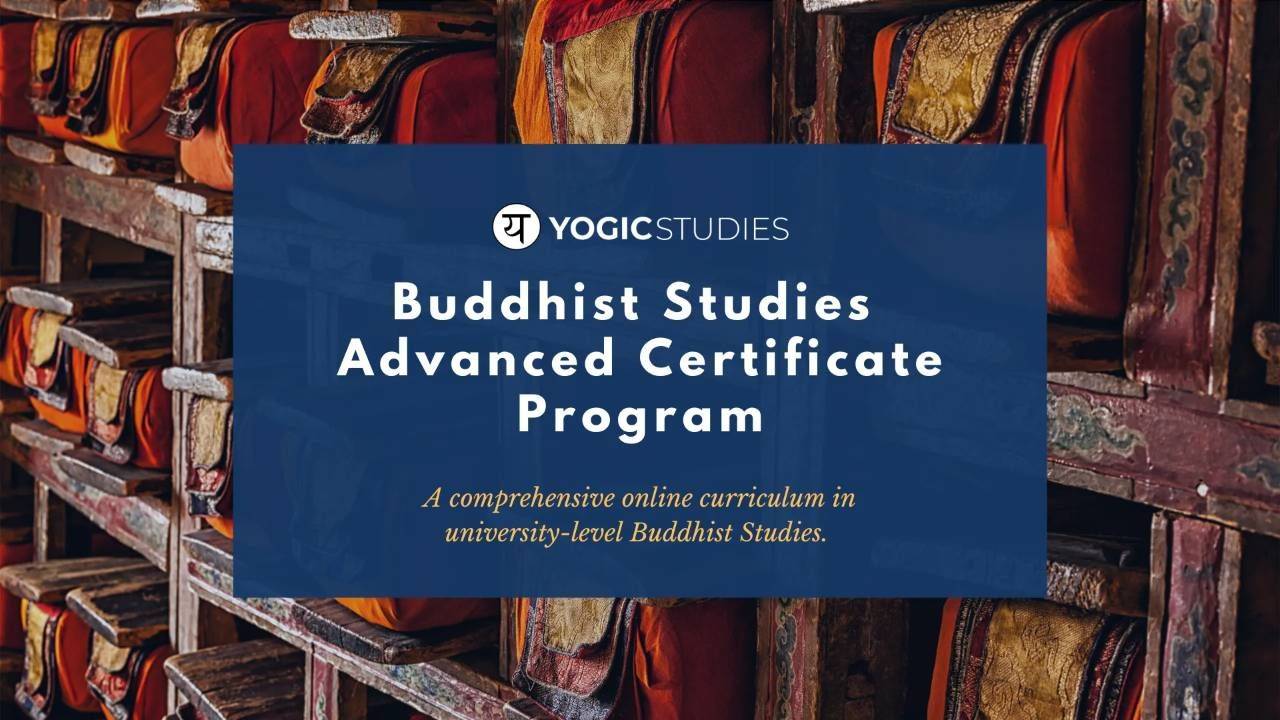Meet Your Pali Instructor | Dr. Aleix Ruiz-Falqués
Apr 06, 2023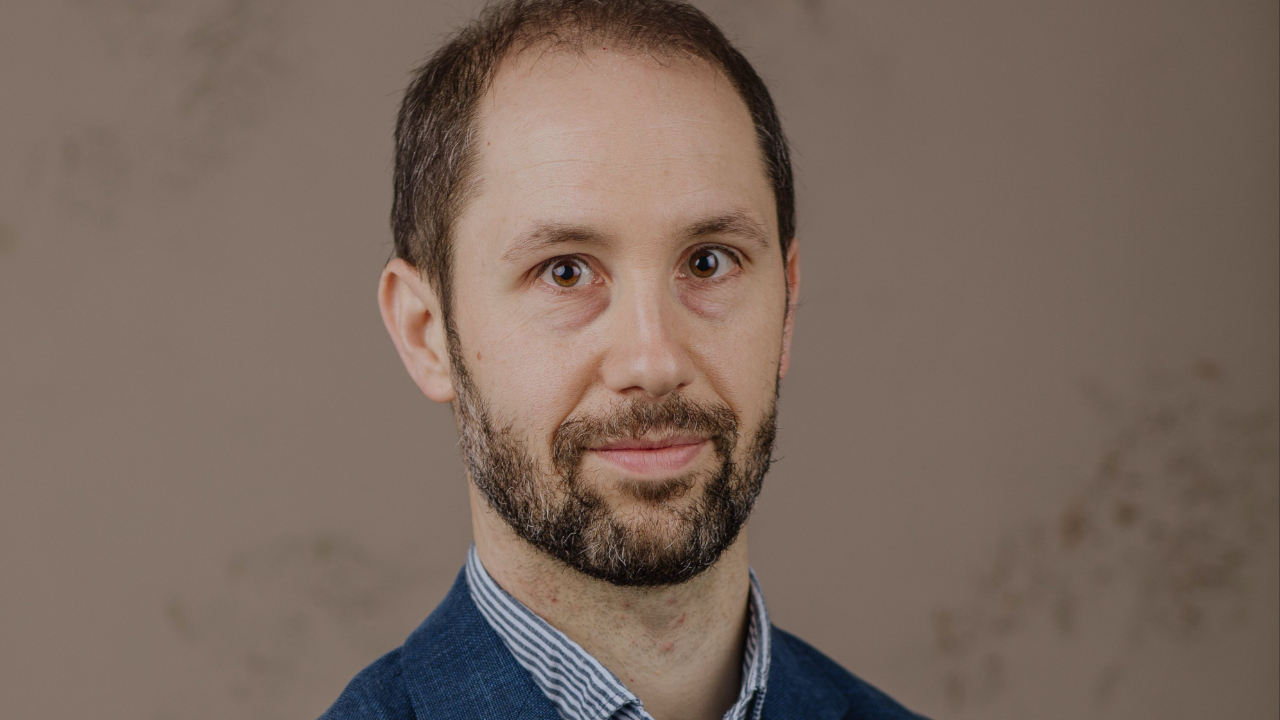
The Path of the Pali-Wala
As an adolescent, Aleix Ruiz-Falqués was interested in filmmaking, the arts, and literature; things that he says, "seemed very far away in time." He had a fascination with asceticism and saints that led him to study Classics at the University of Barcelona, where he was given the opportunity to take a course in Sanskrit. Immediately hooked, he remembers, "I felt that it was not enough." Inspired by the Catalan poet, Carles Riba, who translated the Odyssey into Catalan, a young Ruiz-Falqués envisioned a translation project of his own.
“My goal at the time was very simple: I wanted to translate the Rāmāyaṇa into Catalan, my mother tongue... I was ready to devote my entire life.”
Roused by the thought of this Herculean task, Ruiz-Falqués enrolled in an MA program in India and began studying Sanskrit at Pune University with a concentration in Nyāya logic, taking up residence at a hostel alongside Theravāda Buddhist monks. In addition to his Sanskrit studies, his degree program required students to engage a related language of study, such as Prakrit, or Pali. His hostel-mates, whom he had befriended during his program, had exposed him to their practice of paritta, sutta recitation, and Ruiz-Falqués wanted to know more.
"My degree was in Sanskrit. Pali was a minor subject, but immediately it became a major subject for me, because I found the teachings of the Buddha fascinating."
Not long after, Ruiz-Falqués found himself bedridden with fever in a Burmese monastery for pilgrims in Bodhgaya. He was reading Buddhist India by Rhys Davids when he was struck with what he describes as an epiphany, and resolved to dedicate himself to the study of Pali.
"Somehow at that moment I said, this is for me. I will try my best.”
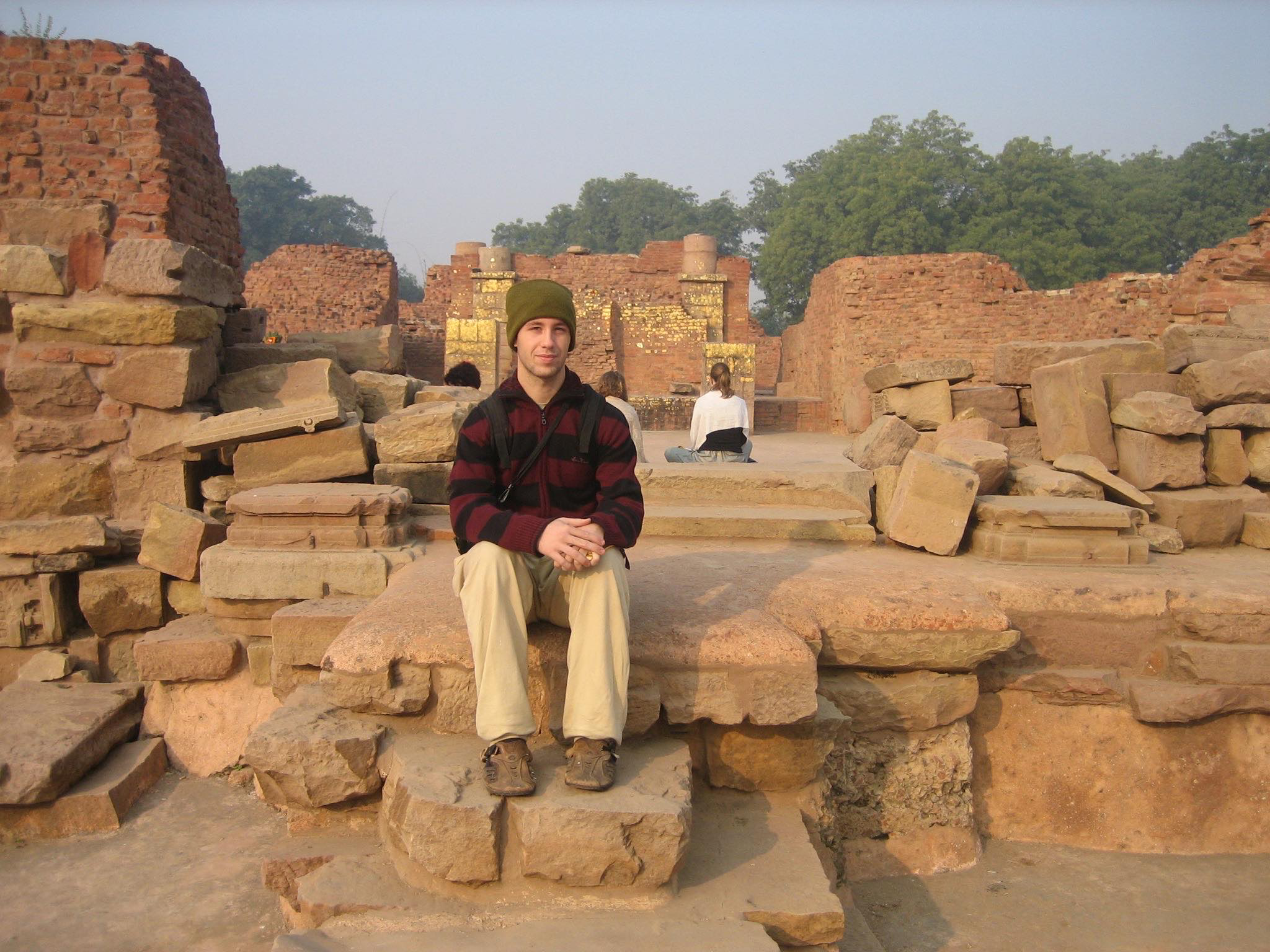
Deer Park in Sarnath, winter 2006/2007
He was a young man far from home, in a country where he had no friends or family, questioning things about himself, who he was, and his past. "It was like a dream. I had changed my country, I had changed everything". This crucial moment, he reflects, marks the start of his path toward Pali language, which would include a second MA translating the Pārāyanavagga into Catalan at the University of Barcelona and a PhD from the University of Cambridge.
[It was as if] "there was this thing, that it seems like it was meant for you all along, that you didn't even know about," remarks interviewer Dr. Kate Hartmann.
In the episode of the Buddhist Studies Podcast where Ruiz-Falqués shares his story (you can enjoy the full episode here), Hartmann indicates that the experience of being struck by one's area of study, intermingled with long periods of uncertainty and doubt, is a common feature in the journey of a South Asian academic. The way forward is not always clear, there are many stumbling blocks and limitations along the way, and opportunities to study with experts can be rare and hard to find. Determination is asked of those who are compelled to fully immerse in their studies.
This, Hartmann says, is part of what makes the opportunity to learn Pali online so special,
"We get to expand the amount of people who get to encounter Pali."
Fast-forward to present day, and Dr. Ruiz-Falqués is still engaging Pali texts like those his Theravādan hostel-mates introduced him to during his time in Pune. Students at Yogic Studies have the opportunity to absorb his expertise from anywhere in the world, as his students at Shan State Buddhist University and the Hebrew University of Jerusalem do. But he maintains a beginner's mindset.
“I have been learning, I am still learning.”
In his classroom, where no prior knowledge of Pali language is assumed, students can take their own first steps toward opening the doors to Buddhist sutta literature. Even at a foundation level, learning Pali is a gateway to a deeper understanding of this ancient body of wisdom. It is a rewarding experience for anyone interested in Asian art and culture in general, and more specifically in Indian art, culture, and history.
“If you are interested in Buddhism, Pali is a must.”
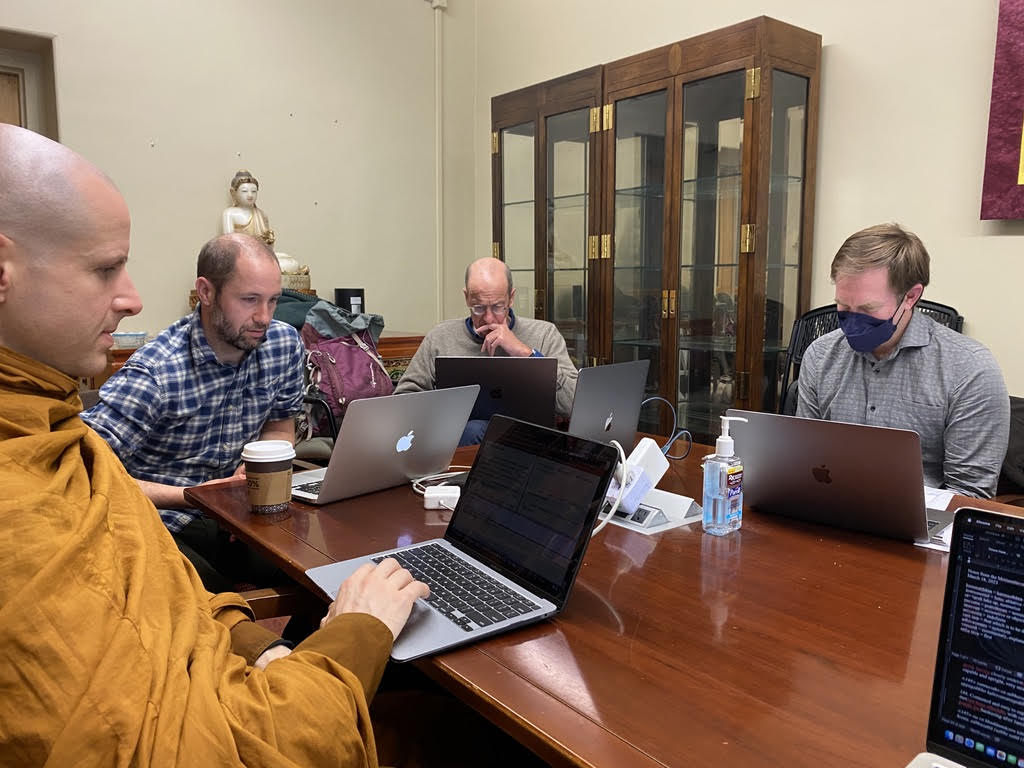
Pali reading workshop at UC Berkeley, 2023. Left to right: Ajahn Kovilo, A. Ruiz-Falqués, Prof. A. von Rospatt, Sean Kerr. Photo: Lauren Bausch.
Note: This interview was Adapted from the Buddhist Studies Podcast, Ep. 8.
Dr. Ruiz-Falqués will be welcoming a new cohort of Pali learners this May 2023. For more info or to register for PALI 101, click the image below.

